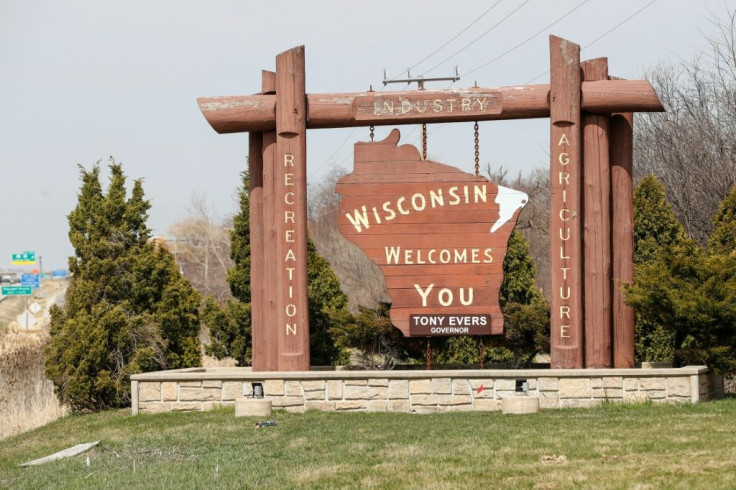Wisconsin Election Proceeds Despite Coronavirus Concerns, Judge Ginsberg Dissents In SCOTUS Case

KEY POINTS
- Wisconsin voters were seen waiting in long lines as they packed the limited number of polling locations opened for Tuesday's elections and primaries
- Gov. Tony Evers issued an executive order on Monday to extend absentee ballot voting and delay in-person voting until June due to the COVID-19 pandemic
- The U.S. and Wisconsin Supreme Courts both ruled against Evers order, saying it was too close to the election to change the "fundamental" outline of the state's elections
Wisconsin voters were seen waiting in long lines Tuesday after the U.S. Supreme court ruled against an executive order from the state’s governor to extend absentee ballots and suspend in-person voting until June 9 for the state's scheduled elections and primaries.
Wisconsin has been under a shelter-in-place order since March 25 that is set to expire on April 25. This has left over half of state’s municipalities struggling with staff shortages at polling locations. The shortage, along with Monday’s decisions, forced Democratic Gov. Tony Evers to call up around 2,500 members of the Wisconsin National Guard to help at open polling locations.
A majority of polling locations have also been closed due to worker shortages and concerns over COVID-19 exposure. Lines running for several blocks were reported in Milwaukee, where only five of the city’s 180 polling locations were opened for Tuesday’s elections. Voters waiting on line were being monitored to ensure they followed CDC guidelines and remain at least six feet apart.
Lines forming just 30 minutes after polls open in Milwaukee, people trying to space. Almost everyone has a mask pic.twitter.com/KVCJ7Ik0Xe
— Astead (@AsteadWesley) April 7, 2020
Evers issued the executive order on Monday after failing in the Republican-controlled legislature to have Tuesday’s elections delayed due to the COVID-19 pandemic. However, the Wisconsin Supreme Court ruled against Evers order shortly after it went through and said the election would continue as scheduled.
Evers absentee extension was then shot down by the Supreme Court, who ruled 5-4 on party lines against Evers' executive order. The unsigned opinion from the court’s five conservative judges said the order “fundamentally alters the nature of the election.”
“Wisconsin has decided to proceed with the elections scheduled for Tuesday, April 7. The wisdom of that decision is not the question before the Court,” the justices said. “The question before the Court is a narrow, technical question about the absentee ballot process.”
Justice Ruth Bader Ginsberg wrote the dissenting opinion and criticized the decision, saying it put Wisconsin voters in a difficult position.
“With the majority’s stay in place, that will not be possible. Either they will have to brave the polls, endangering their own and others’ safety. Or they will lose their right to vote, through no fault of their own,” Ginsberg said. “That is a matter of utmost importance — to the constitutional rights of Wisconsin’s citizens, the integrity of the State’s election process, and in this most extraordinary time, the health of the Nation.”
Ginsberg was echoed by some local officials in Wisconsin who were not happy with the courts’ decisions.
“Now voters will be forced to choose between their health and their right to vote, an untenable choice that responsible public officials tried to avoid,” Madison Mayor Satya Rhodes-Conway told reporters.
© Copyright IBTimes 2025. All rights reserved.





















